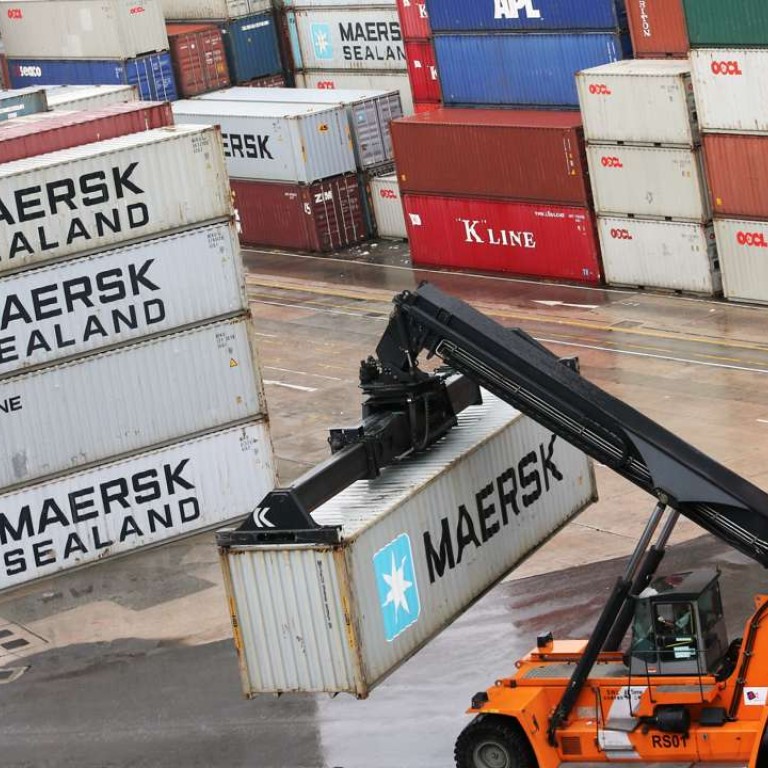
Time for Hong Kong’s shrinking port sector to find new purpose
A full relaxation in mainland’ China’s laws prohibiting foreign-flagged vessels from moving cargo from one mainland coastal port to another could deal a serious blow to Hong Kong’s container freight industry...
Hang Seng Management College (HSMC)
Let’s put this in perspective with a chart that breaks down our port’s business by import and export of goods and by transshipment, which is easily the biggest part of the business in simple tonnage figures.
The rules say that no foreign-flagged vessel can carry goods from one mainland port to another. They also say that Hong Kong is not a mainland port. Thus if a foreign vessel touches at Hong Kong on its way from Shanghai to Shenzhen, it can declare that the goods it carries were transshipped at a non-mainland port and comply fully with the rules.
I wonder how many of these ships actually even come here rather than just file paperwork saying they did but, in any event, the rules have been relaxed and there is now talk of dropping them entirely. Already, as the red line on the chart shows, the transshipment business of the port has noticeably fallen.
This leaves us with the blue line on the chart, representing real loading and offloading of goods and the record here says there has been a steady decline from more than 100 million tonnes a year in 1998 to about 64 million tonnes a year at present.
I think we can ignore that last upwards bump at the right hand side of the blue line as the sort of murky booking anomaly for which the shipping business is at times notorious. There was no reflection of it in our foreign trade figures.

The second reason is that mainland ports are taking back their natural business. Hong Kong survives by doing what the mainland cannot or, for reasons of ideology, will not do. When the mainland at last comes round to doing it, Hong Kong must move on. This has been the story of our economy for 180 years.
So let’s all make like bureaucrats and cry and wail and moan.
Alternatively, we might bear in mind that transshipment does not create many jobs, that we will always be a port for local needs at least and that traditionally Hong Kong has been very good at moving on and finding new things to do. Have some faith in this place.
Best of all, we have the answer here to our housing aspirations. The Kwai Chung container port could yield four square kilometres of development land with a bit of filling in of the berths, enough for several hundred thousand new homes.
Just think of what a difference this could make, all of it in an ideal central waterfront location with extensive existing road, rail and water transport links as well as all utilities already in place.
We have done it before on the harbour waterfront with developments like Taikoo Shing and Whampoa Gardens but this could be the Big Daddy housing project of them all and satisfy every housing demand that our government now faces.
So what is all this talk about serious blow?
It has long been foreseen by all our port operators and, in fact, they are slavering at the redevelopment prospect.

